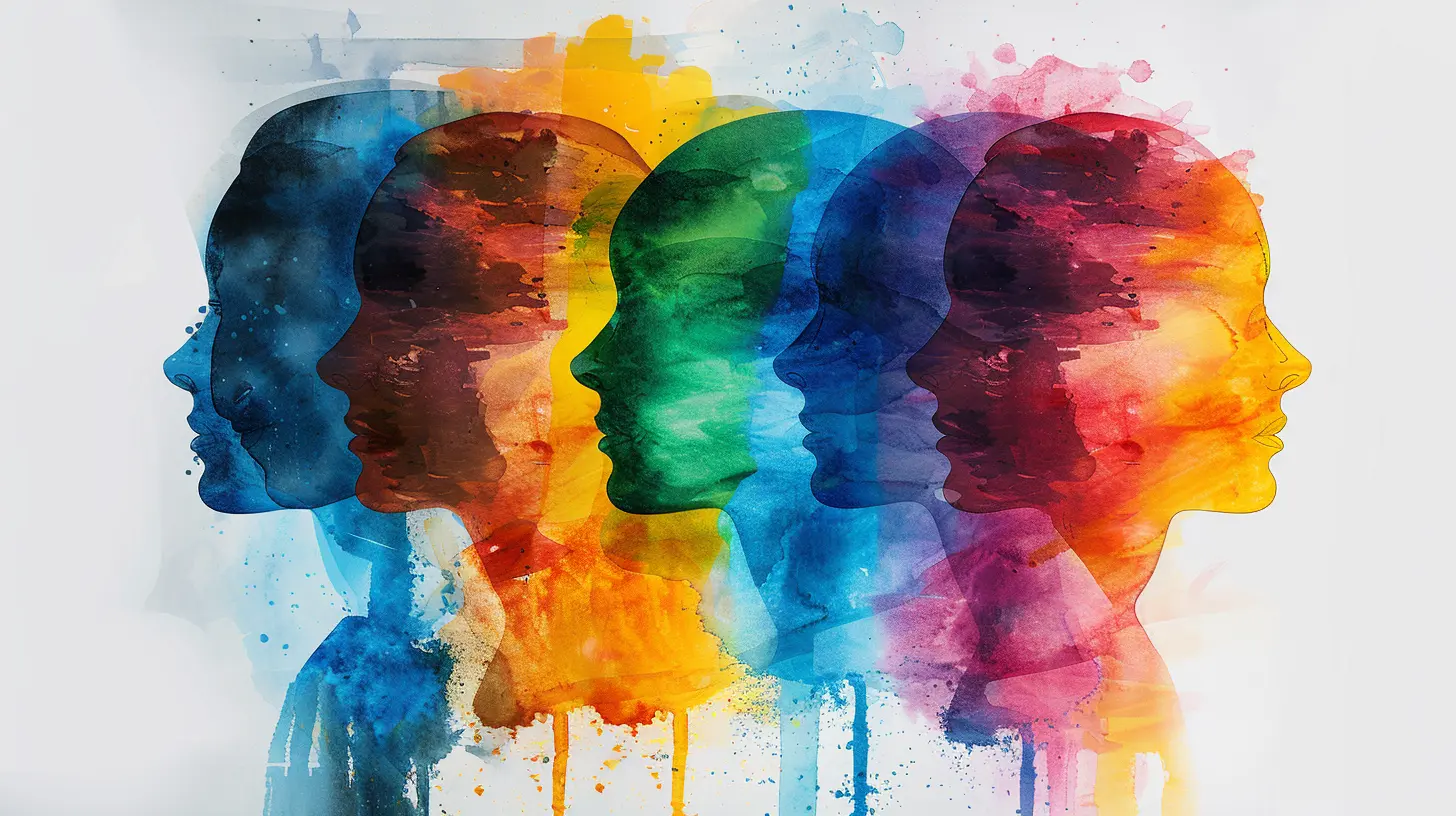10 March 2025
Ever feel like you don’t really know who you are? Or maybe you're struggling to figure out where you fit in this ever-changing world? Identity issues can be incredibly challenging to deal with. Whether it's about your career, your relationships, your gender, or your cultural background—navigating these waters can feel like you're lost at sea without a compass. But here's the good news: counseling can provide that much-needed compass, helping you steer toward a deeper understanding of yourself.
In this article, we're going to dive deep into how counseling can help you navigate identity issues, giving you practical tips, insights, and loads of encouragement. So, buckle up, because we're about to explore how therapy can help you find your true self.

What Are Identity Issues?
Before we get into how counseling can help, let’s break down what we mean by "identity issues." It sounds a bit lofty, right? But it's actually something that many of us experience at some point in our lives.Identity issues occur when you're uncertain about fundamental aspects of who you are. This could involve questions like:
- "Who am I, really?"
- "What do I stand for?"
- "What role do I play in my family, society, or culture?"
- "How do my gender, sexuality, or ethnicity shape my identity?"
It could also mean feeling disconnected from your own values, beliefs, or even your body. The root cause of these issues can vary widely. Sometimes, they're triggered by major life transitions, societal pressures, or trauma. Other times, they arise from internal struggles about one's self-worth or purpose in life.
The point is, identity issues can be overwhelming, confusing, and even isolating. But guess what? You're not alone, and there are tools—like counseling—that can help you confront these issues head-on.

How Counseling Can Help You Explore Your Identity
So, why counseling? Well, counseling offers a safe space where you can unpack all of these complex thoughts and emotions. It’s like having a mental toolbox, and your therapist is there to help you figure out which tools you need to build a clearer understanding of yourself. Here’s how counseling can guide you through the identity maze:1. Self-Reflection and Exploration
One of the first things counseling encourages is self-reflection. A skilled therapist will ask you questions designed to help you dive deep into your mind and heart. It’s not just about scratching the surface; it’s about peeling back the layers to understand what truly makes you tick.For example, if you’re struggling with your career identity, a therapist might ask, “What values do you hold most dear?” or “What goals have been meaningful to you in the past?” These questions can help you explore not just what you do, but why you do it.
Think of self-reflection as a mirror—a way to take a good, hard look at yourself, but with a compassionate lens.
2. Clarifying Your Values and Beliefs
Sometimes, identity issues stem from a misalignment between your actions and your core values. As humans, we’re constantly bombarded by external messages—what society thinks we should do, how we should look, or what we should pursue. Over time, these external pressures can muddy our understanding of our own values and beliefs.Counseling allows you to hit the pause button and ask yourself, “What do I actually believe?” and “What are my values?” Your therapist can help you sift through these external expectations, guiding you to rediscover your internal compass.
3. Addressing Cultural and Societal Influences
Identity issues are often shaped by the societal and cultural environments we grow up in. For example, someone from a conservative background might struggle with their sexual identity, while another person might wrestle with their cultural identity after moving to a new country.In counseling, you get a chance to explore how these external influences have impacted your sense of self. A therapist can help you unpack cultural or societal pressures and give you the tools to create an identity that feels authentic to you, rather than one shaped solely by external expectations.
4. Processing Emotional Baggage
Let’s face it: we all carry emotional baggage. Whether it’s unresolved trauma, past relationships, or unhealed wounds from childhood, these experiences can weigh heavily on our sense of self. They can cloud our ability to see ourselves clearly.Counseling is a safe space to acknowledge and process this emotional baggage. You’ll get to talk about your past experiences, and more importantly, you’ll learn how to stop letting those experiences define who you are in the present. It’s like clearing out the clutter in a messy room—you’ll feel lighter, freer, and more in control of your own identity.
5. Building Self-Compassion
When you're grappling with identity issues, it’s pretty easy to fall into the trap of self-criticism. You might think, “Why can’t I just figure this out?” or “Everyone else seems to know who they are; what’s wrong with me?”But here’s the thing—there’s nothing wrong with you. Identity is fluid, and it’s okay to be uncertain sometimes. Counseling helps you cultivate self-compassion, teaching you to be gentle with yourself as you navigate these difficult questions. A good therapist will remind you that it’s okay to take time to explore and that you don’t have to have everything figured out right now.
This self-compassion becomes an essential tool in your identity journey, allowing you to approach the process with kindness rather than judgment.
6. Creating a Safe Space for Vulnerability
Identity exploration can feel deeply vulnerable. You’re essentially peeling back layers of yourself, and that can be scary. But in counseling, you’re in a judgment-free zone. Your therapist is there to support you, not criticize you. This creates a safe space where you can be your authentic self—flaws, doubts, and all.Being able to open up in this way can help you gain new insights into who you are and who you want to become. Vulnerability, though it may feel uncomfortable, is a key component in the process of self-discovery.

Types of Counseling Approaches for Identity Issues
Now that we’ve covered the basics of how counseling can help, let's look at some specific types of counseling approaches that are particularly effective for navigating identity issues.1. Person-Centered Therapy
Person-centered therapy, also known as client-centered therapy, focuses on the individual's ability to self-actualize and discover their true self. This approach is all about you. Your therapist will act as a guide, allowing you to take the lead in sessions. The emphasis is on creating a non-judgmental, supportive environment where you can explore your thoughts and feelings freely.This method is excellent for identity issues because it encourages self-reflection and self-acceptance, helping you to better understand who you are without pressure from external forces.
2. Cognitive Behavioral Therapy (CBT)
Cognitive Behavioral Therapy (CBT) is another powerful tool for managing identity issues, especially when negative thought patterns are at play. Identity struggles often come hand-in-hand with self-doubt, anxiety, and negative beliefs about oneself. CBT helps you identify these negative thought patterns and replace them with more positive, constructive ones.For example, if you constantly think, “I’ll never figure out who I am,” CBT can help you challenge that belief and reframe it into something like, “I’m on a journey to discover my true self, and that’s okay.”
3. Existential Therapy
If you’re wrestling with the bigger questions of life—like the meaning of existence or the purpose of life—existential therapy might be a good fit. This approach tackles deep philosophical questions and helps you explore the concept of freedom, choice, and individual responsibility.It can be particularly helpful for individuals who feel lost or disconnected from their purpose. Existential therapy encourages you to explore what gives your life meaning and how you can live in alignment with your personal values.
4. Narrative Therapy
Narrative therapy views your life as a story, and you are the author. Sometimes, identity struggles stem from the stories we tell ourselves—stories that might have been influenced by past experiences, trauma, or societal expectations.In narrative therapy, you work with your therapist to "re-author" your life story. This can help you take control of your identity, allowing you to reshape your narrative in a way that feels more empowering and true to who you are.

When Should You Seek Counseling for Identity Issues?
You might be wondering, “Is counseling right for me? Are my identity issues serious enough to seek therapy?” The truth is, there’s no “right” or “wrong” time to seek counseling. If you’re feeling stuck, confused, or overwhelmed by questions about your identity, that’s reason enough to reach out for help.Here are a few signs that counseling might be a good idea:
- You feel disconnected from yourself or those around you.
- You’re struggling with major life transitions (e.g., career change, moving, relationship shifts).
- You’re questioning fundamental aspects of your identity, such as your gender, sexuality, or cultural identity.
- You’re experiencing anxiety, depression, or stress related to identity issues.
- You feel isolated or misunderstood in your personal or professional life.
Final Thoughts
Navigating identity issues is no walk in the park, but you don’t have to go through it alone. Counseling offers a safe, supportive environment where you can explore your thoughts, process your emotions, and ultimately, gain clarity about who you are. Whether you're facing questions about your career, gender, cultural background, or personal values, therapy can guide you through the process of self-discovery.So, if you’re feeling lost, confused, or overwhelmed by identity issues, consider reaching out to a counselor. It’s a brave step toward understanding yourself better and living a more authentic life.









Kason McCoy
Empowering insights for joyful journeys!
April 7, 2025 at 3:19 AM